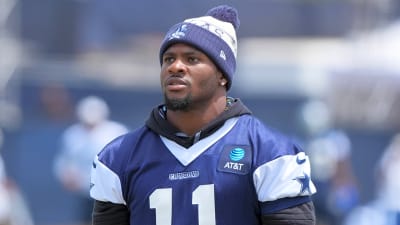Celtic’s dominance at home continues. Brendan Rodgers, since his return to the club, has delivered two league titles, a Scottish Cup, and a League Cup. Four trophies in two seasons are a good return — but Celtic aren’t measuring themselves by domestic dominance alone anymore. Despite what those managing expectations might have us believe…
The real question now is whether we’re about to take the next step in Europe — or whether that ambition will once again be dulled by caution, internal politics, and strategic inertia.
A recent article making the rounds from a compliant and board-friendly outlet is dressed in insincere optimism. But underneath, it’s more of the same — a quiet defence of the status quo. Its language, tone, and selective narrative strongly echo the standard operating procedures of a former CEO. Financial prudence above football investment, and the insistence that strategy and delay are the same thing.
Peter Lawwell is no longer CEO, but as Chairman, his presence remains
Peter Lawwell is no longer CEO, but as Chairman, his presence arguably remains. And his approach — one that dominated the club for over a decade — appears to be alive and well in both messaging and decision-making.
The article claims the club is doing the right thing by waiting out the market, that there’s no need for concern, and that mere fans – or customers – should simply ‘trust the process.’ But what is the process? And who is defining it? That is never clearly communicated. Nothing is.
Because from the outside, it looks like a manager building for progress — and a board still managing for maintenance.
A board that understand signing Matt O’Riley for £1.5m and flipping for £25m, or even Nicolas Kuhn for £3 and selling on for £17m keeps the transfer tills ringing in the right direction but can’t see how you can make a similar killing on £10m players. They look at Engels, Idah and Trusty, see £27m on the park and worry that they’ll not see their money back. It’s all about money.
Brendan Rodgers is now entering his third season of his second spell as Celtic manager. His return brought stability and silverware. Scottish Premiership and Scottish Cup in year one and Scottish Premiership and League Cup in year two.
In Europe, signs of growth were also evident. His first season back saw early shoots — credible performances, signs of tactical maturity, and moments that showed Celtic could compete. The second season took it further, with Celtic reaching the Champions League play-off round — the closest the club has come to the proper knockout stages in years.
Rodgers has earned trust. Not because he’s perfect — but because he’s proven
Rodgers has earned trust. Not because he’s perfect — but because he’s proven. He’s shown he can win, rebuild, and compete. What he needs now is not time, but support. Not quantity. Selective quality in key positions. Three or four quality additions. Champions League-level signings. Difference-makers. And right now, they haven’t arrived.
It’s been reported by a respected journalist that a recent meeting between Rodgers, CEO Michael Nicholson, and major shareholder Dermot Desmond has perhaps subtly shifted the mood.
Desmond, the man widely understood to have brought Rodgers back to Celtic, had been seen as the manager’s key backer — someone capable of over-ruling boardroom drift in favour of real ambition. But has that backing cooled?
Rodgers’ transfer record last summer may not have convinced Desmond
Rodgers’ transfer record last summer — particularly big-ticket moves for Adam Idah, Arne Engels, and Auston Trusty — may not have convinced Desmond that further major investment should follow unquestioned.
Since that rumoured meeting, the nature of the summer business so far now feels telling. Aside from the superb return of Kieran Tierney, the rest — Yamada, Inamura, Osmand, Nygren — are low-risk, long-term project players. Nothing wrong with that on its own whatsoever. But when these signings replace a raft of Mark Lawwell-era exits, the concern is clear. Is Rodgers being given tools to win now, or just to rebuild again from the bottom?
Rodgers has decisively moved on many of the players signed under former Head of Football Operations, Mark Lawwell. Players who arrived from marginal markets, with limited experience, have been quietly shipped out.
Has that pushback ruffled feathers above?
This was a subtle but firm assertion of footballing control — a message that the manager, not the analytics team, will define squad building. But has that pushback ruffled feathers above? Mark Lawwell’s exit was officially low-key. But the implications weren’t.
With Peter Lawwell still chairing the board and his son’s departure arguably leaving an unspoken tension behind, there’s reason to wonder whether the club’s recruitment reset has created more resistance than renewal.
Michael Nicholson’s role also deserves scrutiny. Nearly four years into his tenure as CEO, fans still aren’t sure whether he’s driving football policy or simply managing its budget, or if he even gets to do that.
Rodgers may again find himself managing expectations instead of exceeding them
His approach has been steady and professional — but too often, it has felt like the continuation of the previous model, rather than a bold new era. If recruitment remains cautious and internally driven, Rodgers may again find himself managing expectations instead of exceeding them.
Which would be a waste — because he’s already shown he can deliver more.
Desmond has always been Celtic’s power broker. When he wants something done — it gets done. He stepped in to bring Rodgers back. He backed the club’s rebuild in 2021. But now, his position feels unclear.
Has he stepped back? Is he unconvinced by Rodgers’ transfer judgement after last summer? Or is he merely waiting, again, to see what the board produce, or is he front and centre behind the scenes?
The answer matters — because Celtic are at a fork in the road
The answer matters — because Celtic are at a fork in the road. Either the manager gets the backing to push forward in Europe, or the club settles for domestic bliss once again.
Celtic don’t need a revolution, far from it. But we do need clarity. Rodgers has won four trophies in two years, improved European performance, cleared out poor signings, and set the foundations for growth.
Now, he needs the board to match his ambition. To finish what’s been started — not with speculation, but with action. Because unless the club move decisively for the quality players this project now demands, we’ll be watching another summer drift by, wondering again why we didn’t build on a position of strength.
Brendan Rodgers has delivered. It’s time the club did too.
More must-reads:
- Newcastle and Manchester United in tug-of-war over star striker
- Troubling update emerges about Joel Embiid’s health
- The 'NFL mascot names' quiz
Breaking News
Trending News
Customize Your Newsletter
 +
+
Get the latest news and rumors, customized to your favorite sports and teams. Emailed daily. Always free!








